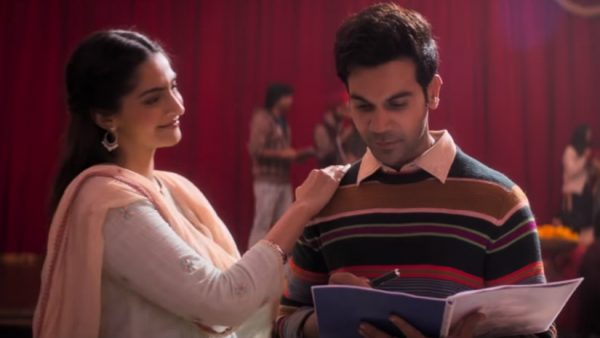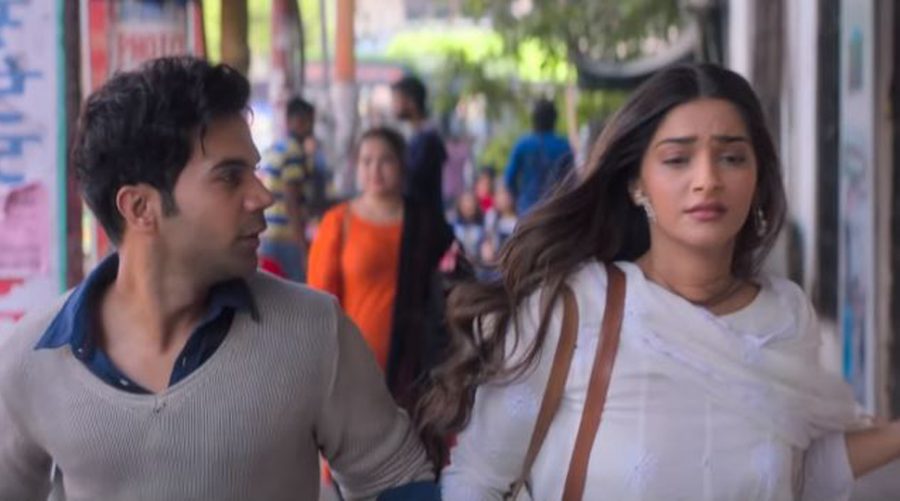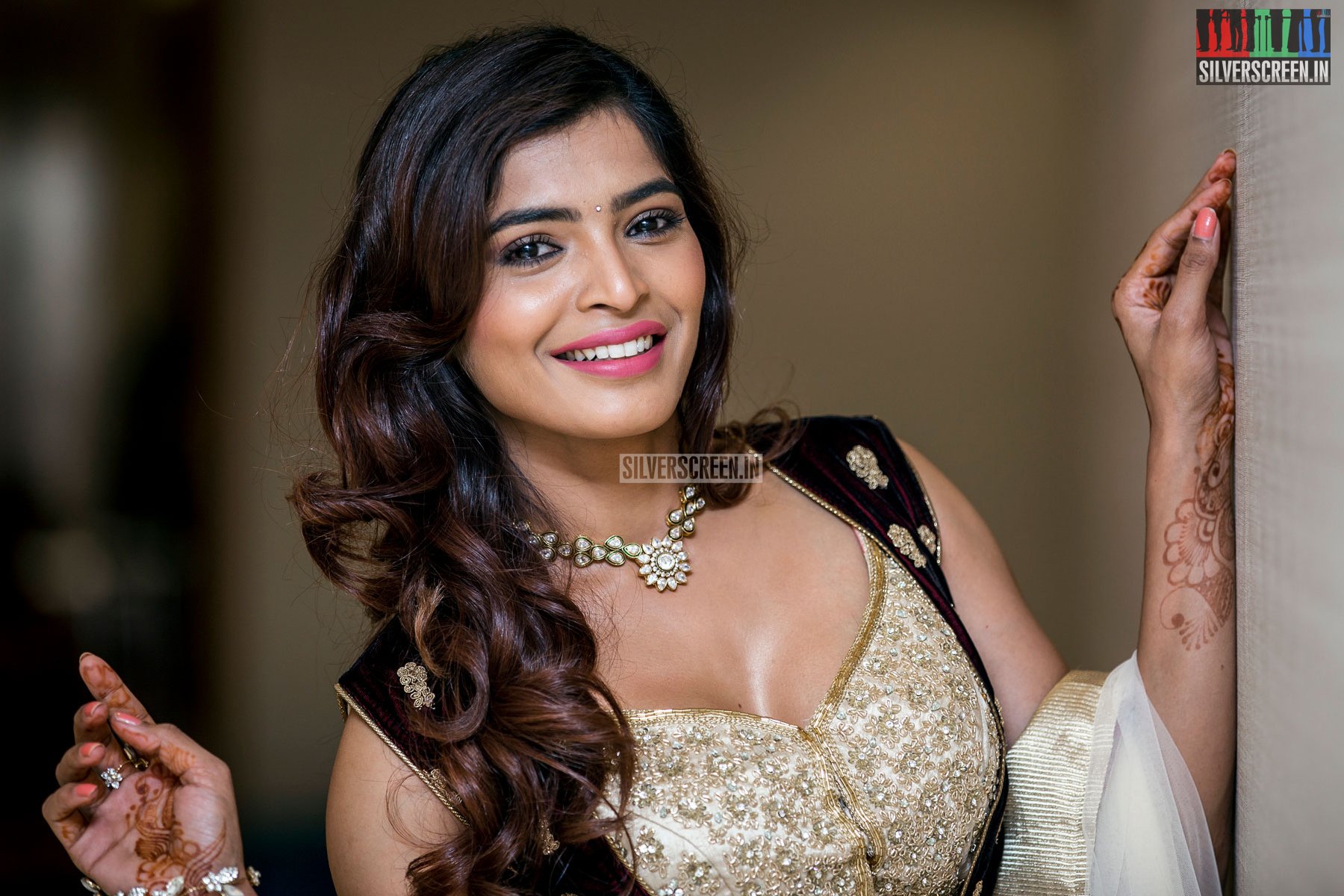In the world that Ek Ladki Ko Dekha Toh Aisa Laga sets up, a lesbian who authors her own destiny is not possible. She has to wait for different men to enable her to come into existence
I learned today was Valentine’s Day at about 10 am when Silverscreen commissioned me to write a piece in its honour. If Valentine’s Day inspires only a cold professional commitment in me, you can guess that I’m not exactly an inhabitant of Planet Chocolatey Romance. I say this because even a decade ago, I could have just introduced myself as a lesbian and any prickly withdrawn hard-heartedness would have been magically explained by that one glorious word. Now that we have entered popular culture as non-murderers, parent-pleasers and man-likers, it is a brave new world.
Nice lesbians of course brings us straight to Ek Ladki Ko Dekha Toh Aisa Laga as if the line was drawn by a protractor. In this two week old film starring Anil Kapoor, Juhi Chawla, Sonam Kapoor and Rajkummar Rao, the lesbian character (I really can’t use the word protagonist) is literally called Sweety. Sonam Kapoor plays a childhood misfit who harbours a secret love of women and Anil Kapoor plays her widower father Balbir Chaudhury with a secret passion for cooking. Between them, they’ve got chics and food covered, yo. Sweety spends most of the film in some kind of uneasy house arrest, subject to the plotting of her grandmother and brother who want to make sure she is respectably married.
She has other ideas, having met a spiffy lesbian called Kuhu (Regina Cassandra) with a British passport at a wedding. In an act of exceptional cruelty, Sweety’s smartphone is taken away. Take a phone away from millennials and they are forced to write IRL letters (the sad song, Chitthiye, is about letters). But this is a whole generation that has forgotten that the post office still exists, so many excruciatingly avoidable misadventures had to accompany the delivery of these letters. Rajkummar Rao, the writer of these letters, is a playwright called Sahil Mirza with daddy issues who gets accidentally drawn into a forbidden lesbian love story. It is a different matter that until the interval he fancies himself as Sweety’s hetero love-interest. In other words, Sweety is a side character and he is a sidey character.
He gets jilted and then pieces his hurt self back together with the age-old healing method of producing over-expressive, literal minded art. Oh, oh and possibly plagiarised art, since he takes generous inspiration from Sweety’s childhood diary. He writes a play about the two women he is trying to reunite and, well, they end up together but perhaps more in spite of his play than because of it. Juhi Chawla plays Chatro, a divorcée food caterer who also comes along for the ride, turning into Anil Kapoor’s love interest later in the film. She is unqualifiedly the best thing about Ek Ladki.

I admit I was one of those first day first show enthu-cutlets, paying exorbitant weekend rates in Delhi for the first time ever. I giggled when Sonam Kapoor’s upper class family was slyly made fun of by their own domestic employees, I indulgently cringed at both the lesbian love story and Sahil Mirza’s writerly male angst in equal measure and I was genuinely moved by the electric combination of Anil Kapoor and Juhi Chawla. Ek Ladki’s sometimes strained attempt to evoke the texture of small town Punjab owes an unacknowledged debt to the renaissance of Punjabi-Punjabi cinema in the last decade. (Here I tentatively propose a sequel about Anil Kapoor and Juhi Chawla’s second-marriage married life).
What I hope my chaotic summary has made clear by now is that Ek Ladki is barely about its titular lesbian love story. The two women get a minuscule amount of screen-time. Playback for the title track is even sung by a man, echoing the ventriloquism performed on the lesbian love story by the playwright Sahil. In the world that Ek Ladki sets up, a lesbian who authors her own destiny is not possible. She has to wait for different men to enable her to come into existence. Sweety writes a diary of her childhood trauma, so she is a literal author but not a real one. The diary itself never leaves her house. I half-expected all of this but the film appears to very consciously keep Sweety from becoming her own self-assured person.
In sharp contrast to the emotional tenor of her childhood diary, Sweety’s actual romance with Kuhu is quite angst-free. The film would have us believe that successful romance in adulthood can cure any childhood scars. Kuhu is a self-realised lesbian sure of herself, someone the film imagines can only live outside India. Whatever we see of the two together, the love seems genuine and instant and much less emotionally complicated than any IRL lesbian romance. Any dykes looking for on-screen PDA will be disappointed. There is one of those ephemeral hand-to-shoulder touches somewhere I think. The blandness is no accident. Ek Ladki’s lesbians are the dull antidote to the hyper-sexualised and menacing lesbian of cinemas past. Sweety and Kuhu are perhaps necessary revisions of a history of extreme representations, but sadly they don’t make for very compelling cinema.
Yet, the film has one of the most warmly sympathetic portrayals of masculinity I’ve seen in Hindi cinema. Both Anil Kapoor and Rajkummar Rao have significant transformative arcs. Balbir Chaudhury’s realisation of his passion for cooking (deemed too feminine to pursue by his mother) coincides with his reawakened desire for companionship and his growing willingness to accommodate an unexpected version of his daughter’s love life. Any one sea change wouldn’t be possible without the other two. Similarly, Sahil Mirza’s discovery of the staying power of romantic love coincides with his journey away from both Delhi and artistic atrophy. In the process, he fixes his broken relationship with his parents and reverses his penchant for professional failure.
Recommended
As I watched the men in the film, I had the uncanny sense of something new, yet I couldn’t put my finger on it until a week later. Ek Ladki was co-written by Gazal Dhaliwal who identifies as a trans woman. Perhaps because of this, the film shows us a uniquely fixable or redeemable version of masculinity. Except for Sweety’s brother Babloo (Abhishek Duhan), the men of the film are not caricatures and we repeatedly find out they are capable of unlearning excess of all kinds. Excessive control, excessive seriousness, excessive self-vindication or excessive repression. The idea that the gender you are assigned at birth need not be destiny is the trans woman’s gift to the cis man. She has given cis male characters a sudden onset equanimity, a real-time ability to zoom out and change course. In the age of off-screen #Metoo, this remarkable combination of impulse control, empathy and moral resolve in cis men makes a splash on-screen.
Featured image: newindianexpress.com
*****
Poorva Rajaram is a writer and co-organiser of Bangalore Queer Film Festival.



